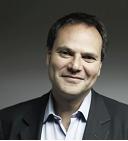David Murphy
First published in Research World July/August 2010
David Murphy talks to Eric Salama, CEO of the Kantar Group, about the future of the market research business.
The marketing and communications industries are undergoing rapid change with the rise of online and social media. Is the market research industry doing enough to move with the times?
The industry can only go as fast, or a bit faster, than its clients; it can’t go off in a direction totally devoid of any connection to its clients. I think the industry has done OK over the last few years. There has been a move towards the use of online data collection methods; people have been experimenting with communities as opposed to traditional panels; and there are some good businesses out there in terms of monitoring web behaviour and social media.
We can begin to answer questions such as: “If I behave like this offline, how does it drive online purchasing?”. We have made good progress, but there are some key areas where we need to do more. More of our work needs to be forward looking. There needs to be a better balance between evaluative, backward looking work, and forward looking work that helps us make better decisions. Also, the work needs to be actionable – there is so much done that clients can’t do anything useful with.
Why is that?
Well the more thoughtful, incisive work is harder than just producing tables of data, it needs a client who is willing to pay for and wants that kind of work. It needs companies and individuals who understand what good research looks like. It needs a lot of education, coaching and mentoring.
How can market research tap into consumers’ appetite for social media to gain new, up-to-date insights?
The questions are the same questions; it’s just the context in which you’re asking them that’s different. “If I spend this amount of money on these media, what will the effect be? What’s the best way to optimise the media budget and build the brand in an effective way? What’s the connection between attitudes and behaviour?”
Over the past 18 months, we have moved way ahead in terms of the questions we can answer. Compete and Kantar retail data in the US can answer questions on how online behaviour drives offline purchase. Cymfony, Compete and Dynamic Logic can help clients understand how the way people talk and behave online drives attitudes towards brands. TNS is helping clients to understand how social media drives the uptake of products, so I think we are developing tools and joining up the dots to answer big questions for our clients.
And what about mobile as a research tool?
We are doing mobile in different parts of the world. We have panel services using mobiles and PDA’s (Personal Digital Assistants) to collect consumption information and other data in parts of Asia and Africa. As mobile migrates into something else, we will use it lot more. It really depends on what you mean by mobile. The lines between PC and mobile are blurring. Look at the iPhone and the iPad, is that a mobile device? The potential for using the iPad as a data collection tool is huge. There’s no reason why you couldn’t use it for copy testing, for example, and when you look at the video quality on smartphones now, I think we will see mobile as a much more powerful data collection tool.
What impact does all this have on people entering the industry? What skillsets are needed?
You need an incredibly diverse group of people, with a multitude of different skillsets. You need technically excellent statisticians and researchers; people who are expert in data fusion; storytellers who can weave together a story from a myriad of different strands. You also need good qualitative researchers with great listening skills, who can find the nugget among a mountain of information; and people with incredibly good project management skills, because a lot more research is multinational and requires complex coordination. There’s not one type of person who will succeed in the industry, there are multiple types. But you need a passion for insight, for helping clients, for doing better work and making better decisions, and to be incredibly service-oriented.
Certain skills have become more important. A lot of clients’ research and insight departments have been run down, so you end up filling some of those roles yourself. Being able to deal with senior clients and tell the story to them in a succinct way is more important now than it was five years ago, because there is a lot more contact with senior clients. The business is also more technology-intensive, so you need to understand how technology can change the way we do things and help clients to understand that too. These are new skills, but the core skill, really listening to consumers and getting close to them, has not changed, and being able to weave insight from a multitude of sources into a story, that skill has always been needed.
How important is privacy to the market research business?
It’s a serious issue. The area where it will impact the business most is in digital, because there is a lot of concern around personal information collected online, the use of cookies, whether personal information is shared, and what happens when you fuse two data sets. So it’s important that we and the whole industry remain absolutely black and white in the distinction between research and direct marketing. We cannot move a nanometre into the direct marketing industry so none of what we do can get us close to using personal information to target people. We need to educate legislators around the differences between different marketing industries, and we need to do a better job to make sure we are not holding any data sets and transferring any data that, if it fell into the wrong hands, someone could use to abuse someone’s personal information.
It goes right down to rules about the data that researchers can have access to on their laptops, and what needs to be encrypted. At the heart of all this we need to make sure consumers’ personal information is protected, and that as we fuse databases, we do not do things our customers and consumers would not want us to do.
Finally, if you had the power to change three things within the consumer insights and market research sector, what would they be?
I would like clients to appreciate good work, and to differentiate between low-priced work that can’t deliver what they want, and higher-priced work that can. I would like clients to be consistent in paying for what they say they want. One issue is procurement departments within client organisations, pushing for incredibly low prices and yet the insight and marketing people in those organisations who want higher-quality, better-value, actionable insight. They need to reassert themselves in their conversations with their internal procurement departments, and be more consistent in what they ask us to do.
My second change would be for the industry to have a better reputation. In some parts of the world – Japan is one example – our industry is not held in as high regard as some other industries, and that affects our ability to bring in talented people, and at the end of the day, a stream of talented people coming into the trade is vital to our ability to succeed.
My third point is that we have good examples all around the business of incredibly insightful work, delivered in an engaging, creative way that leads to clients making better decisions. I don’t know what proportion of our works falls into that category, but I would wish it to be 100 per cent for all of our clients, all of the time. We are getting there, but there’s still some work to do.
Listen to the full audiocast here.



